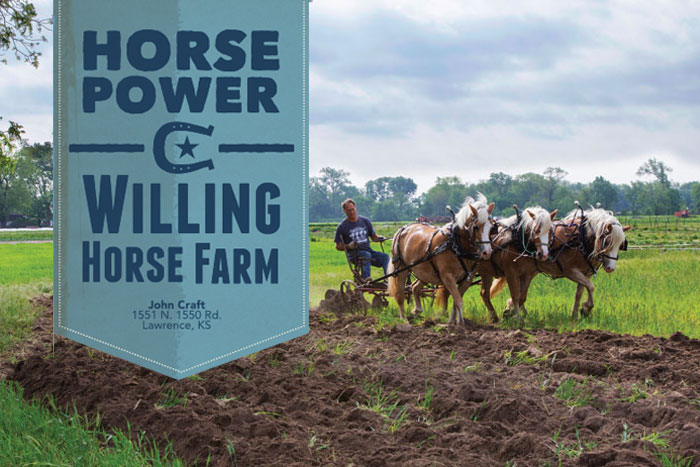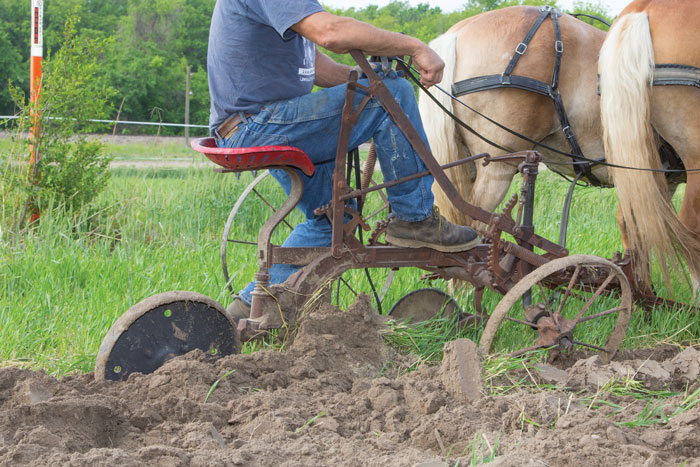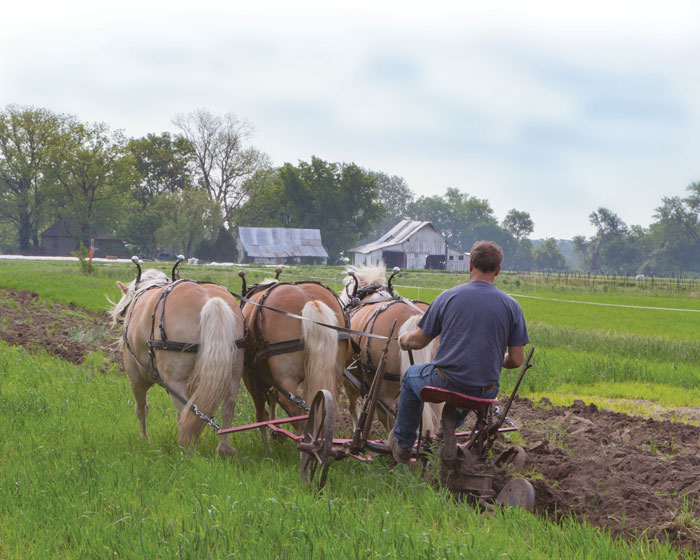| 2014 Q2 | story by LIZ WESLANDER | photos by STEVEN HERTZOG |

Willing Horse Farm is truly an apt name for John Craft’s five acres of farmland just east of Lawrence. John tends his land almost exclusively with horse-drawn machinery powered by his three Austrian Haflinger horses. It a method that he says is built on a trusting and rewarding relationship with the animals.
“It is no mistake that I call the place Willing Horse Farm,” says John. “The Haflingers have always been bred for great dispositions and they enjoy working. They like to cooperate.”
John grew up riding tractors on his family’s small dairy farm in central Kansas, but only tried farming with horses after he began growing vegetables on his current land in 2000. One of the horses staying on the land happened to be trained for a harness, so he thought he would give it a try.

“The first time I started working behind a horse, I was surprised at how enjoyable it was compared to riding a tractor,” says John.
Since discovering the joy of horse-drawn farming, John has gradually collected, restored, or built from scratch a nearly complete collection of horse-drawn machinery that includes both walk-behind and riding plows and cultivators, a row planter, a harrow and a hauling wagon.
Farming is a part-time gig for John, who also works as residential contractor. He has grown a variety of vegetables over the years that he has sold at the Lawrence Farmer’s Market, the Cottin’s Farmer’s Market, and The Merc Co- op. This year, John will grow a few fall crops for markets, but will concentrate most heavily on sweet sorghum, which he will process into sorghum syrup using a horse- drawn sorghum press. Sorghum syrup is a sweetener the color of dark honey that is common in the southern United States.

“Some people mistake it for molasses, but it is much more mild than molasses,” says John. “A lot of people have grown up with it and tell me they are quite excited to have it here.”
Willing Horse Farm does not use any chemical fertilizers or pesticides. The horses provide fertilizer in the form of manure. While John says that his farming methods are more sustainable and personally satisfying than methods that rely on petroleum, he says the economic advantages are negligible.
“I’m not going to argue that I make more per hour because of the horses,” says John. “Doing it this way is more challenging, requires more skill, and takes more time. It’s really a quality of life thing. I enjoy doing it this way, and I make a profit.”
